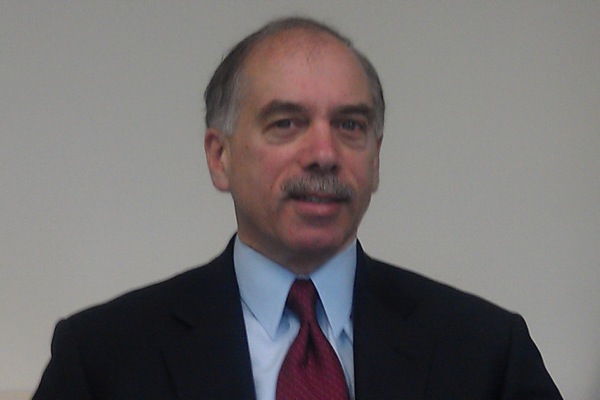Today, in Part 2 of our article series feature employment insights from Howard Kesten and APA Search, we get a look at some practical tips for acing your next interview. (If you missed Part 1, click here.)
Interviewing can often be a daunting task. How many times have you, as a candidate, felt drained after an interview, and wished you had prepared better? Or even worse, you wish the interview had never taken place. Use our roadmap below to ace your future interviews.
The Basics (they’ve always worked, they always will!)
Wear traditional business attire. For men that means wearing a suit and tie, (ties should begin at your neck, not your navel), shine your shoes and be well-groomed. For women, there are so many more options, but your attire should reflect professionalism and be appropriate for the culture of the company that is interviewing you. For conservative companies you might want to consider a two-piece suit. For a “casual” company you can tailor down your look.
If you are dressed inappropriately the employer won’t say anything when they meet you, but simply won’t invite you back.
I recently attended a meeting in California with a new client. An executive level friend who arranged the meeting suggested that I need not wear a tie as the company dress code was casual. I opted to wear a suit and tie. I was very happy with my choice. When the company president walked into the room, he was wearing a suit and tie out of respect for me. You can never be overdressed for an executive job interview.
If you are not sure about the dress code and you are not an executive, don’t hesitate to ask someone in HR or the recruiter about the dress code. If you are interviewing for an executive position, don’t call, just dress in formal business attire.
When you first meet the employer provide a strong, but not overly powerful, handshake. During the interview maintain good eye contact and good posture.
Attitude
This is a big deal! If you decide to go on the interview then go all out for the job. Don’t even think about telling an employer you’re really not looking for a job. Even if you’re not sure the job is for you, remember that it will never be your choice whether or not to accept to the job if it’s never offered to you. Many candidates I have interviewed begin their interviews with a complacent attitude and then later realize that the job I’m presenting is their dream job. Too late, you’re out!
Candidates who are complacent during an interview show me that they’re simply not ready to learn and listen. Learning and listening is 75 percent of every executive’s job. The most successful executives I’ve ever placed have the smallest egos and look for something to learn in every conversation.
Be Confident – Be Prepared – Engage the Employer
I’m always unsettled when candidates begin an interview by asking me what I would like to know, as if I were the game show host and they were the contestants. In comparison, nothing excites me more than when a candidate begins an interview by commenting on a recent company achievement that they have heard or read about. Demonstrate some of the work that you’ve done to prepare for the interview. The employer will find it quite flattering.
An interview should be a collaborative effort between the employer and the candidate to share enough information so they can both determine if the fit is right. The employer will respect you more if you are prepared with questions and comments, and engage them during the interview. At least 50 percent of the time the employer should be answering the candidate’s questions and talking about the position and the company.
Do your homework and ask the right questions. Read their website “cover-to-cover” and Google any recent news and announcements. If they are publicly held, look at their recent financials and note how the company’s success has been trending. As much as you can, study the functional area in which you will be working. For example, if you’re interviewing for a senior marketing position, study their ads, their packaging and their programs. Have an opinion. Be ready to discuss it, being careful not to be overly critical or judgmental.
Be Prepared to Discuss Your Unique Ability to Contribute
Early on in the interview ask the interviewer to review the short- and long-term goals of the position, and how you are going to be measured at the end of each year. With those goals in mind, talk about why you’re uniquely qualified to reach those goals, identifying specific and relevant accomplishments and experiences.
Ask about the challenges that the previous person in the position experienced in trying to meet those goals. Take the time to suggest specific tactics and strategies that you might deploy to meet those goals. The perfect scenario for both you and the employer is when the interview morphs into more of a planning session.
If you’re interviewing for an executive role, your leadership and team-building skills will be some of the attributes being carefully measured by the interviewer. If you truly are a strong leader and team-builder, don’t forget to mention the specific accomplishments of your team and provide examples of subordinates you have mentored and where they are today.
Respect the Privacy and Intellectual Property of Your Current Employer
Resist the urge to share your current employer’s private information, even if asked. The interviewer will respect your discretion.
A Strong Resume
It all begins with your resume. Create a resume that clearly defines your responsibilities and accomplishments in each position. Provide measurable, accurate information on each accomplishment, being careful not to breach your current employer’s private information. Keep it honest, don’t exaggerate and keep your margins at one-inch or less. Feel free to forward your resume to us for comments and suggestions.
Good luck with your interviews! Keep us posted on your success!
Editor’s Note: Have questions about job searches, interviews or finding (and keeping) great employees? Send them our way and Howard may answer them in an upcoming feature! Send your questions to AMN Editor Amy Antenora at [email protected].
For nearly three decades, APA Search has helped numerous aftermarket companies find great talent. The firm has worked with clients to help fine-tune their organizational structure as well as develop successful succession strategies. In the coming weeks, Howard Kesten and APA Search will continue share with AMN readers practices that will help keep your company staffed with the most qualified executives, rather than the most available. If you’re a career-seeker, we’ll provide you with the secret sauce for effective and successful interviewing. Stay tuned!














